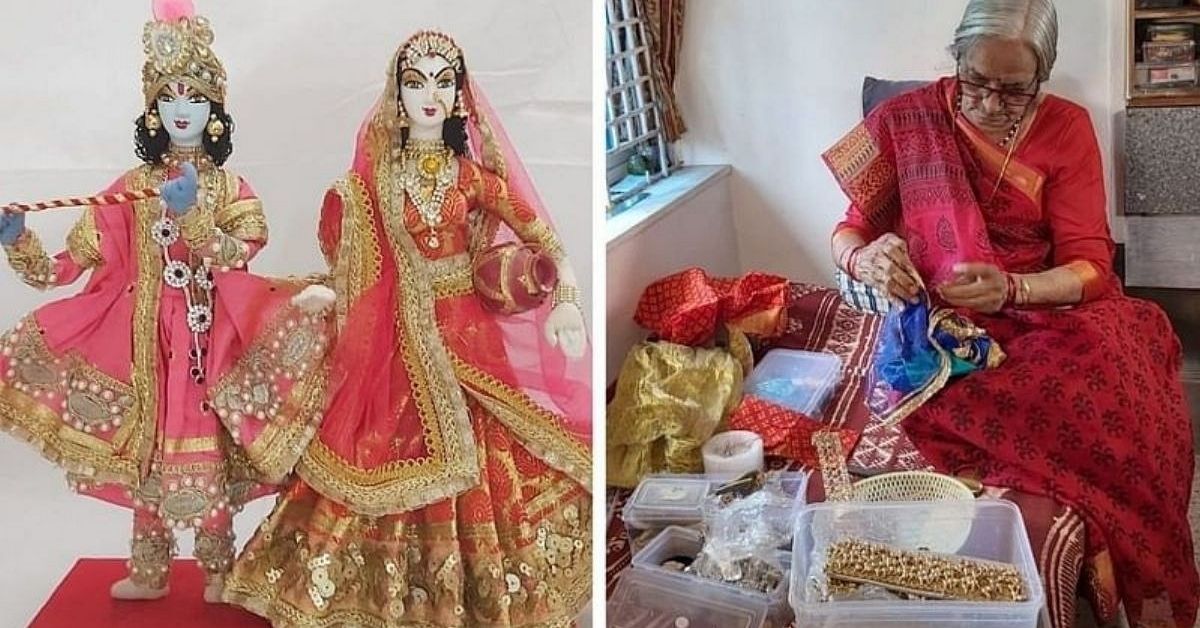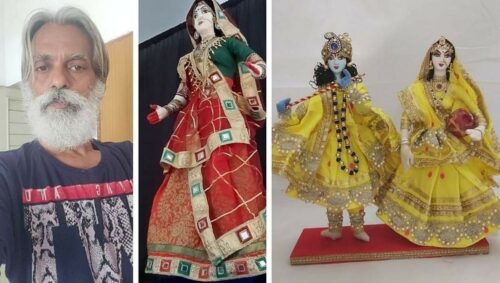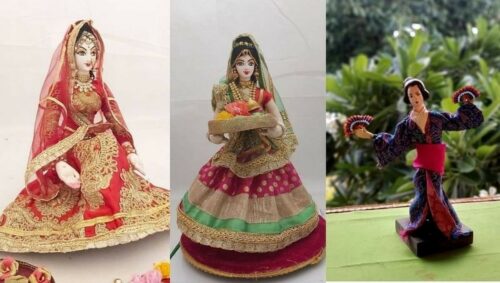78-YO Woman’s Handmade Ethnic Dolls Compete With Mass-Produced Barbies
Move over, Barbie. A 78-year-old woman entrepreneur from Gujarat, Ranjanben Bhat makes stunning hand-crafted dolls from cloth that are inspired from India's diverse culture.

“The first thing that comes to people’s minds when they hear the word ‘doll’, is the Barbie doll. But it’s common knowledge that Barbies are a machine-made product. They are the representation of a foreign culture,” Harin Bhatt said to The Better India in an earlier interview.
In contrast to the mass production culture of such dolls, his Kalashree Foundation is circulating unique, handcrafted dolls that speak of India’s ethnicity and diversity.
This is an organisation that was started by Harin with his mother Ranjanben Bhatt back in 1995. Today, they make up to 500 dolls a month with a team of 20 skilled women working under them.
But 78-year-old Ranjanben had taken up the craft as a hobby, long before it turned into a business.
The Birth of Indian Dolls
This Gujarati artist discovered the vibrant art of doll-making in 1960. Her son Harin shared, “Back then, Arunaben Desai was expanding her organisation called Vikas Vidyalaya to make women of the community self-reliant through education and skill. At her academy my mother learnt tailoring, doll-making and hand embroidery and began making figures.”
His father’s occupation caused the family to move across various cities like Dhoraji, Rajkot and Upleta for the next 35 years. Everywhere they went, his mother would disperse the skills she had learnt among other eager women.
“In 1979, we were stationed in Gandhinagar. Here she started her own sewing classes, and ended up training close to 8,000 women all alone. This has been her biggest achievement as an individual,” he said.
But it wasn’t until 1990 that Ranjanben’s dolls found a market.
His younger brother Yogesh, a playwright by profession, was to fly to America at the time. For a play, he required puppets and asked his mother to help with the requirement.
“So she made 15 to 20 dolls in four to five months. They ended up on display outside a town hall in New Jersey. As it turned out, the Gujarati community over there loved the work.” They had already found a market abroad, and Harin added, “That’s when I decided to expand my mother’s hobby into a full-fledged business.”
Harin is a graduate in Science, but said that at the time he wished to pursue something different.
He began extensive research on the industry. He studied the art of doll-making, learnt its practice from his mother, and understood the nuances of making it into a profitable business.

Finally, Kalashree Foundation was established in 1995.
The Ethnic Dolls
The aim was to take the art of doll-making as practiced in India to a global level. In comparison to the machine-made dolls of the West, this foundation’s dolls expressed the ethos of their craftswomen.
“The making of each doll is undertaken in 14 parts. This includes painting, sculpting, tailoring, jewellery work and costume designing. No machine is used except in the stitching process. Every woman expresses the skill of her hand on these dolls, which take up to 18 hours each in making,” Harin said, adding that the dolls are made of cloth.
Even to this day, Harin and his mother spend about eight hours in the workshop making dolls. Every woman employed by the foundation also has similar working hours.
A total of one lakh dolls have been created by the team till now.
They have developed 18 different doll-making patterns, under which there are over 300 models based on the diverse culture of India. “Some are farmers, some dancers. We also have a replication of Radha and Krishna,” Harin shared.

Each doll says something unique, which means that each customer, from wherever they are, can find a doll that speaks to them the most.
According to Harin, Kalashree Foundation currently has 4,500 customers over 18 countries. This includes clients like ISKCON Touch Stone Foundation and various airports of Chennai and Bengaluru.
Harin shares that a doll museum in Gandhinagar is also on the cards.
To see the work done by Kalashree Foundation, you can head to Harin’s Instagram page.
Read this article in Gujarati here.
Edited by Yoshita Rao
If you found our stories insightful, informative, or even just enjoyable, we invite you to consider making a voluntary payment to support the work we do at The Better India. Your contribution helps us continue producing quality content that educates, inspires, and drives positive change.
Choose one of the payment options below for your contribution-
By paying for the stories you value, you directly contribute to sustaining our efforts focused on making a difference in the world. Together, let’s ensure that impactful stories continue to be told and shared, enriching lives and communities alike.
Thank you for your support. Here are some frequently asked questions you might find helpful to know why you are contributing?


This story made me
-
97
-
121
-
89
-
167











